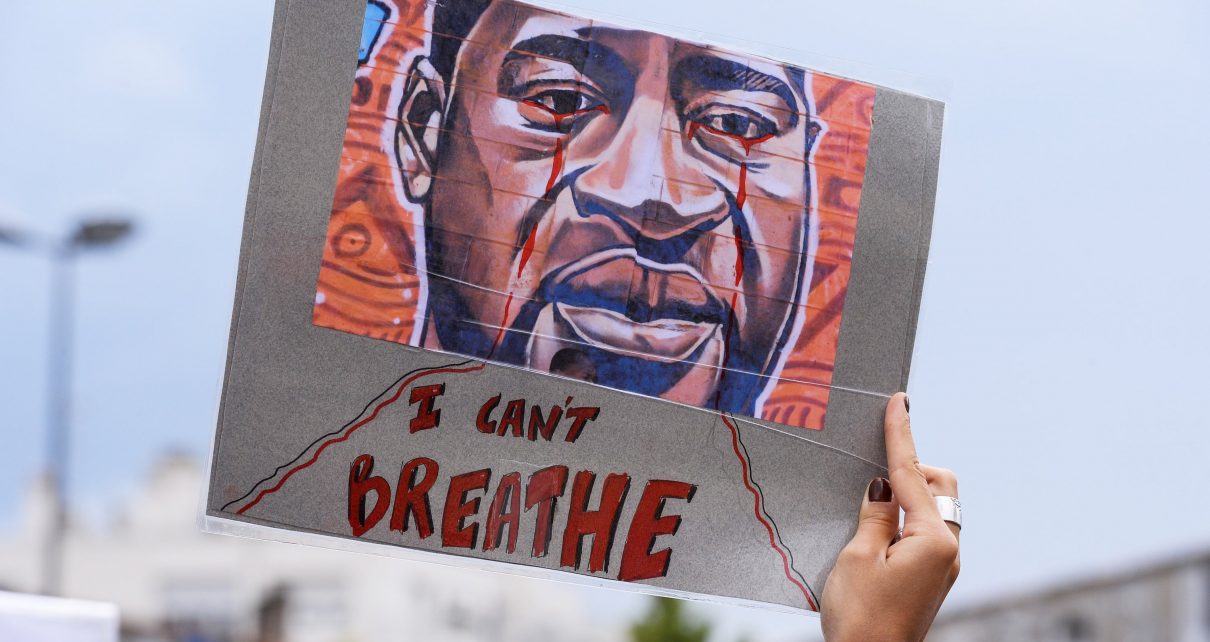In late September, a New York Supreme Court judge ordered a judicial inquiry into the death of Eric Garner. In 2014, Garner’s last words, “I can’t breathe,” caught on tape, became a national rally cry for criminal justice reform in the United States. Those same words have been spoken by many Black men during their last moments of life while interacting with the police.
It has been known for centuries that black men are more likely to die in police custody than men of other races. Could there be other factors aside from the color of their skin that puts these men at risk? Because “I can’t breathe” is so frequently uttered, one such factor could be asthma.
Asthma, also known as bronchial asthma, is a chronic disease of the airway characterized by intermittent inflammation of the airways, which over time leads to irreversible changes. An estimated 339 million people globally had asthma in 2016.
Asthma is a common disease in both children and adults. People living with asthma frequently have difficulty breathing and wheezing brought on by stress, exertion, and irritants in the air. Most mortality from asthma occurs in low- and middle-income countries. Usually, it has a low fatality rate compared to other chronic diseases.
However, in 2014, African Americans were about three times more likely to die from asthma-related causes than the white population. Black children are over four times more likely to be admitted to hospital for asthma compared to white children. African Americans do not only have a higher prevalence of asthma than whites; they are also plagued with higher rates of asthma-related morbidity and death. Multiple factors contribute to this disparity in prevalence rates including socioeconomic status, environmental factors and, plausibly, genetics.
While it is well established that genetic factors strongly affect susceptibility to asthma, it is uncertain the extent to which genetic variations contribute to the disparity in asthma prevalence, morbidity and mortality in different races.
African Americans living in low-income areas have a higher prevalence of asthma and are at a greater risk of asthma-related death. Evidence suggests that both the African American race and lower socioeconomic status are independent risk factors for asthma prevalence, morbidity, and mortality affect the rate of asthma diagnosis in African Americans. Patients who lack sufficient financial support or health insurance are at greater risk of asthma-related mortality.
The quality of air breathed, which depends on the degree of environmental pollution, contributes to the asthma morbidity of urban residents in the United States like African Americans. Obesity, which is now pandemic, is another risk factor for bronchial asthma. These are two issues that particularly plague the Black people of American inner cities.
Unfortunately, the American health care system has many inequalities that negatively impact people of color. These inequalities lead to gaps in health insurance coverage, poor access to health care with higher mortalities, poor health maintenance behavior due to lack of follow up, and poor provider-patient communication. The result is poorer outcomes for Black people living with asthma.
Police brutality is inordinately a cause of mortality amongst the people of color. In the United States, African Americans disproportionately bear the brunt of these brutalities. Many of them, unfortunately, MAY have some underlying or undiagnosed health challenges like asthma. Incidents of police brutality involving all races tend to be targeted at lower-income people who often do not have the financial resources to effectively publicize their complaints of police brutality or to seek redress.
There are no large studies on the knowledge, attitudes and practices of police officers concerning asthma. It is uncertain that police officers are aware of the symptoms, signs and immediate care that can be given to asthmatic patients in custody until help arrives.
In 2014 there was a case of an asthmatic in police custody who kept saying he was asthmatic and could not breathe in Los Angeles. The police officers could not recognize the warning signs. That inmate died. If the officers knew how to recognize the clinical tale-tell signs, he might have been alive today.
The doctor who performed an autopsy on Eric Garner testified that a police officer choked him with enough force that it triggered a “lethal cascade” of events, ending in a fatal asthma attack. How many more Black men have died in the hands of the police because of their asthma? How many more must die before we make the needed changes?
There is a need to put an end to racism in the United States and the world at large. Given that asthma is prevalent in communities of color, the police must embrace better tactics in apprehending, restraining and keeping custody of suspects. We must de-emphasize the use of force and firearms while we work to improve the health and health care of all communities.




